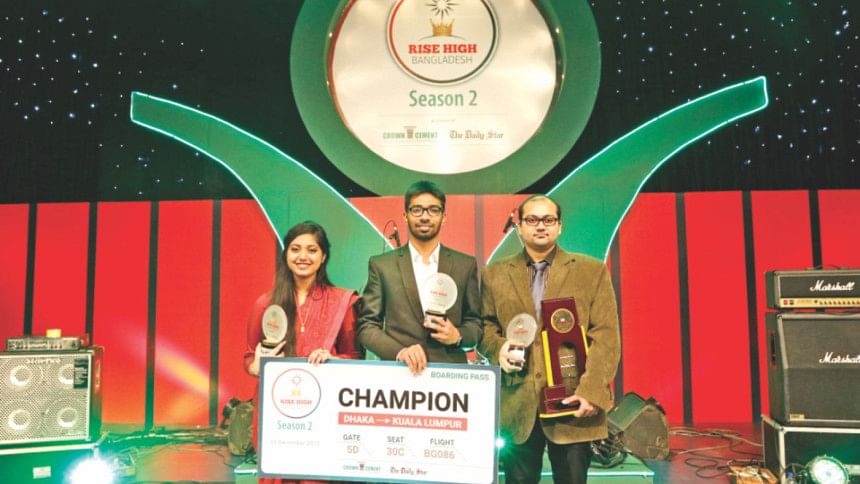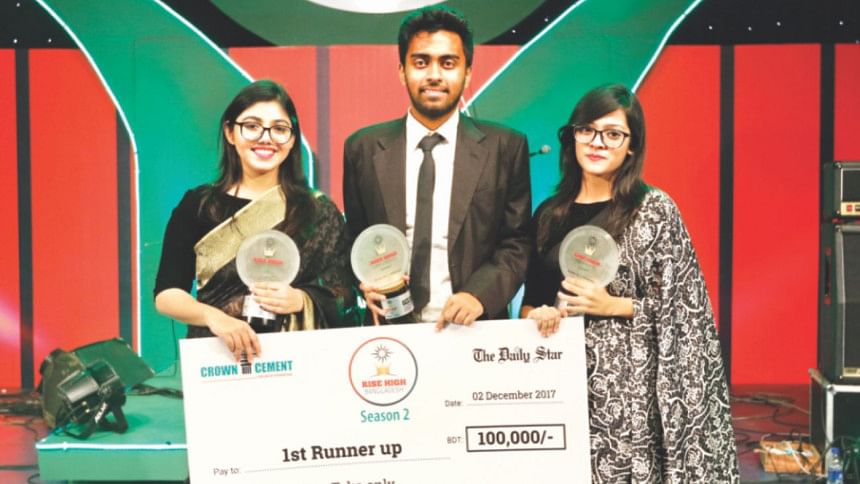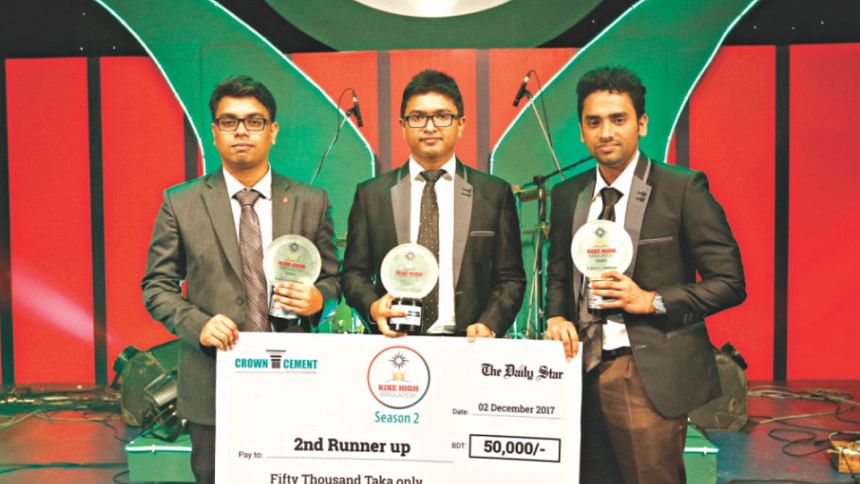Turning waste into value

The Sept of Baelor from the University of Dhaka, the champion team of Rise High Bangladesh's second season, proposed getting a slice of a nearly untapped sector where an organic polymer is produced from discarded shrimp shells.
The team members said Chitosan powder is widely used in making biodegradable plastics, pharmaceuticals, cosmetics and food products and in purifying water.
Their business plan revealed that the global market for Chitosan in 2015 was worth $3.19 billion and 36,900 tonnes of it were used annually to make products. Bangladesh is one of the largest exporters and producers of shrimp. In fiscal 2015-16, some 1.25 lakh tonnes were produced while exports brought in $207 million.
Although local consumption has also increased, Bangladesh in the same year dumped $1.2 billion-worth shrimp shells.

By 2022, overall global supply of Chitosan will be only 70,000 tonnes against a demand for 155,500 tonnes. Bangladesh at present can produce 12,000 tonnes annually.
The champions proposed initially investing Tk 157 crore to make an annual export of Chitosan worth $1.2 billion, which is 3.34 percent of the country's present export earnings.
The idea of the runners-up team, Third Dimension of the Bangladesh University of Professionals, also involved an untapped market: producing marketable animal feed from black soldier fly larvae.
The larvae is a natural protein for animals and it will be composting organic city waste collected from restaurants, shopping malls and other sources in collaboration with the city corporation.
The team proposed setting up a factory in Narayanganj Economic Zone and investing Tk 8 crore to produce 9,750 tonnes of animal feed a year. They said Bangladesh produces 50 tonnes of organic waste a day.
Targeting some European and Asian markets as export destinations, the team intends to grab 2 percent of the global animal feed market, which was estimated to be $400 billion this year and to reach $920 billion by 2040, and make exports worth Tk 1,320 crore a year.
The investment payback period is nearly 3 years, they said while presenting their export idea at the second Rise High Bangladesh contest at the International Convention City, Bashundhara in Dhaka on Saturday.

The objective of investing in such a unique project is to reduce overdependence on food grain as the world needs more food to feed increasing populations.
They said global food production should increase by 70 percent by 2050 as a child dies from hunger every 3.6 seconds. Green Bees, a team from the University of Rajshahi, was ranked third in the competition for its export idea of producing a fine quality yarn from pineapple leaf fibres to weave an anti-allergic garment, which is in high demand in the western world.
The team said over 150 million Europeans suffered from chronic allergy. The use of polyester fabric is largely blamed for it. They said the time was ripe for Bangladesh to exploit this business opportunity. The team planned to invest $14,45,870 to set up a textile company and maintain costs to produce the eco-friendly yarn.
Eyeing markets in Portugal, Spain, the US, the UK, China, Australia and Germany, the team targets to make exports worth $16.10 lakh in the first year, $17.50 lakh in the second and $22 lakh in the third.
They estimate to spend $3.5 for each kilogramme of EcoFib, the yarn which could save Bangladesh $45 million a year by reducing cotton imports.
The Rise High Bangladesh is a joint initiative of Crown Cement and The Daily Star. It aims to inspire Bangladeshi youth to come up with export ideas and convert them into feasible business products and services.
The champion team will get the opportunity to visit different industries in Malaysia to develop their idea, the runners-up received a cheque worth Tk 1 lakh while the third team received a cheque worth Tk 50,000. All three teams also received crests.
A jury panel selected the three teams, each comprising three students from a university, presenting the best business ideas at the final event.
Planning Minister AHM Mustafa Kamal handed over the crests and cheques.
Imran Rahman, dean of the School of Business at the University of Liberal Arts, Syed Nasim Manzur, former president of the Metropolitan Chamber of Commerce and Industry and managing director of Apex Footwear, and Bitopi Das Chowdhury, head of corporate affairs of Standard Chartered Bangladesh, were in the jury panel.

 For all latest news, follow The Daily Star's Google News channel.
For all latest news, follow The Daily Star's Google News channel. 



Comments